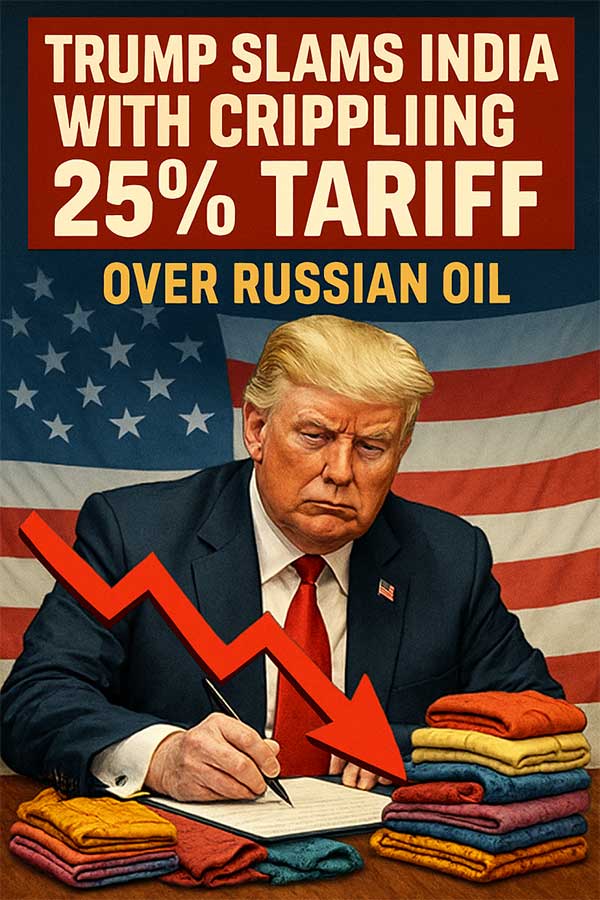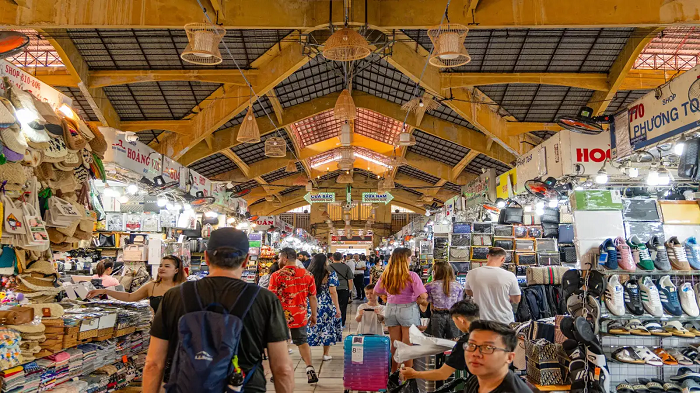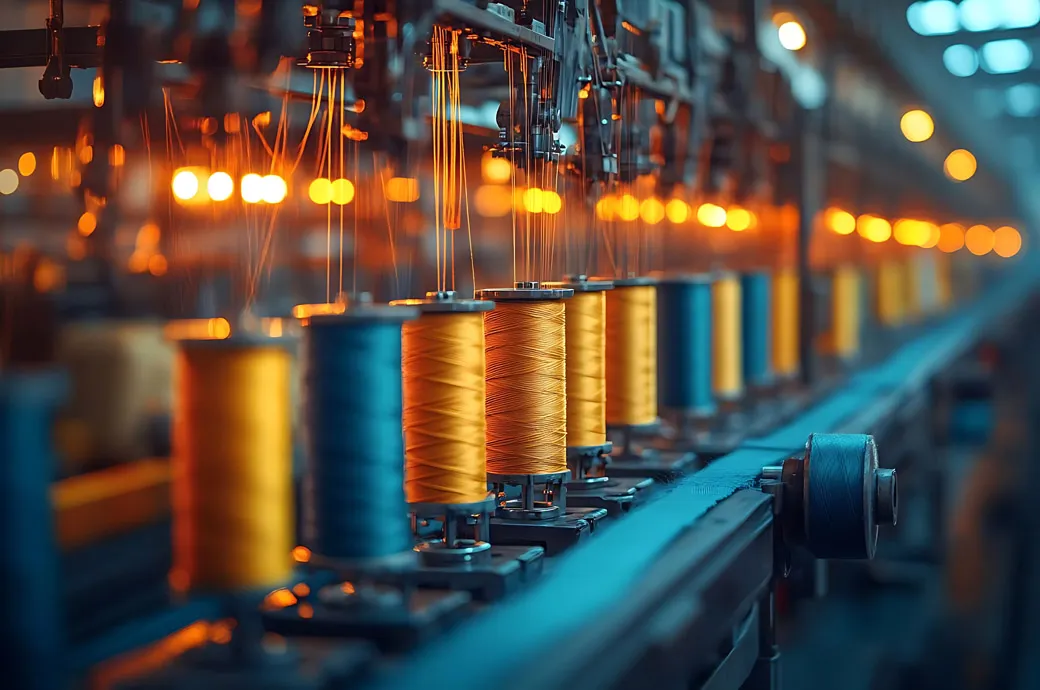FW
Marking a substantial rebound from the depths experienced during the COVID-19 pandemic, Index of Consumer Sentiments has reached its highest point since at least March 2019.
Compiled by the Centre for Monitoring Indian Economy (CMIE), the index grew by 5 per cent to 110.9 in April 2024 as compared to April 2019. While rural consumer sentiment reached its highest level since 2019, urban sentiment dipped to a seven-month low. Consumers earning between Rs 1 lakh ($1,198.48) and Rs 2 lakh ($ 2,396.95) annually witnessed an 8.3 per cent increase in consumer sentiment compared to 2019.
However, consumer sentiment for the lowest earners declined by 3.4 per cent in April 2024 compared to April 2019. Similarly, those earning between Rs 2 lakh ($ 2,396.95) and Rs 5 lakh ($ 5,992.38) per annum, as well as those earning Rs 5-10 lakh ($5,992.38 – $11,984.76), experienced dips of 2 per cent and 3 per cent respectively. Earning over Rs 10 lakhs ($11,984.76) annually, the highest income group saw a difference of 12.5 per cent in consumer sentiment. Suggesting cautious optimism, nearly 27.92 per cent of households anticipate improved conditions for their families in the coming year.
Global home textiles firm, Welspun Living has appointed Naiyya Saggi as an independent director with effective from April 25, 2024.
Spanning four years, Saggi's tenure as an independent director will end on April 24, 2028. Renowned as the founder of BabyChakra, Saggi has over 16 years of experience and currently is the Group co-founder and president of the digital-first beauty and personal care conglomerate, The Glamm Group.
A prominent figure in the startup ecosystem, Saggi is also an expert in building contemporary consumer brands, fostering communities, and advocating for women in technology,
Additionally, she serves as a member of The National Taskforce for Regulatory Issues at DPIIT Ministry of Commerce and as an elected Governing Council member of The Tech Entrepreneurs Association of Mumbai. This esteemed association represents the dynamic US$ 50 billion Mumbai tech ecosystem, boasting a membership that includes 50 Unicorn and Soonicorn founders.
Dipali Goenka, CEO and Managing Director, Welspun Living, cities Saggi’s strategic acumen and extensive experience in B2C and e-commerce along with her insights into consumer behavior and digital trends as factors driving Welspun Living's B2C growth strategy forward.
In response to her appointment, Saggi articulated her alignment with Welspun's values and her eagerness to collaborate with the board and management team to spearhead strategic initiatives. She emphasised her commitment to foster sustainable, inclusive growth that integrates profit with purpose.
The Italian textile machinery sector in 2024 has commenced with a mixed bag of outcomes. According to data from ACIMIT – the Association of Italian Textile Machinery Manufacturers – the orders index for the first quarter has stagnated compared to the same period last year, resting at 61.2 points (basis: 2021=100).
The stagnation is attributed to divergent trajectories in domestic and foreign markets. While domestic orders surged by 15 per cent compared to Q1 2023, international orders experienced a 4 per cent decline. Notably, foreign market orders stood at 59.4 points, contrasting with Italy's robust 73.9 points. However, both figures fall short of 2021 levels.
ACIMIT President Marco Salvade remarked on the cautious sentiment prevailing in foreign markets, citing geopolitical uncertainties impacting investment decisions, particularly in key markets like China, Turkey, and India.
Conversely, domestic orders show a slight uptick. Salvade noted a partial recovery from the significant decline witnessed in 2023, although he remains cautious about a definitive reversal. He emphasized the importance of the Transition 5.0 plan in stimulating domestic investment and awaits its implementation to gauge market response. With order backlogs supporting four months of assured production, the sector remains cautiously optimistic amid global uncertainties.

In a pioneering forecast by Shopify, the global ecommerce fashion industry is projected to soar to a trillion dollars this year. Behind this monumental growth lies a significant transformation in luxury fashion, driven by a fusion of sustainability, technology, and personalized experiences.
Sustainability: Redefining luxury
Consumers, more conscientious than ever, are driving a seismic shift towards sustainability in luxury fashion. Reports indicate that over two thirds of shoppers are willing to pay extra for sustainable products, signaling a demand for ethical consumption. This shift extends beyond consumer preferences, with luxury brands increasingly embracing sustainable practices, from materials sourcing to second-hand markets. By prioritizing quality over quantity, luxury labels are pioneering a circular system aimed at reducing waste and prolonging the lifespan of clothing.
Moreover, eco-conscious designs are gaining traction as leading luxury brands incorporate sustainable materials and processes. Consumers are gravitating towards pieces with longevity, prompting designers to infuse collections with meaningful narratives, particularly around environmental initiatives.
According to Amanda McCormick Bacal, a prominent figure at Joor, "The future of luxury is marked by a transformative shift, which utilizes tech with human touch to create deeply resonant, individualized experiences."
Quiet Luxury: Elevating essentials
The trend of 'quiet luxury', characterized by understated elegance and superior quality, is undergoing a renaissance. With a staggering increase in global searches, quiet luxury is evolving into a more sophisticated iteration of everyday chic. Recognizable staples like tailored shirts and sleek denim are being reimagined with innovative textiles and subtle color palettes. High-profile showcases, such as Saint Laurent's Spring/Summer 24 collection, underscore this shift towards refined yet understated fashion.
Amanda McCormick Bacal anticipates that the quiet luxury trend will continue to gain prominence, with a focus on elevating wardrobe essentials into minimalist statement pieces.
Timeless Femininity: A resurgence
In a nostalgic nod to the past, timeless femininity is experiencing a revival, with references to the '50s and '60s dominating runways. Floral motifs, epitomized by roses, adorn garments, injecting a romantic allure into spring/summer collections. Modern bridal aesthetics, characterized by dropped waists and oversized sleeves, transcend traditional wedding attire, resonating with a broader audience.
Luxury fashion is embracing outdoor apparel and athleisure, blurring the lines between functionality and style. Brands like Gucci and Louis Vuitton are spearheading this movement, offering collections suitable for diverse settings, including workwear and evening wear. Athleisure dresses, crafted from stretchy fabrics with sporty details, epitomize the fusion of comfort and style.
Technology's role in luxury
The integration of technology into luxury fashion is becoming increasingly pronounced, with AI-driven solutions revolutionizing the shopping experience. From made-to-measure garments to virtual styling, brands are leveraging technology to offer personalized experiences. AI-powered try-on technologies enable consumers to visualize garments before purchase, while virtual stylists curate tailored recommendations.
Amanda McCormick Bacal emphasizes that technology, coupled with human touch, is driving a transformative shift in luxury fashion.
As the global ecommerce fashion industry surges towards unprecedented heights, the convergence of sustainability, technology, and personalized experiences heralds a new era of luxury defined by conscious consumption and individualized allure.
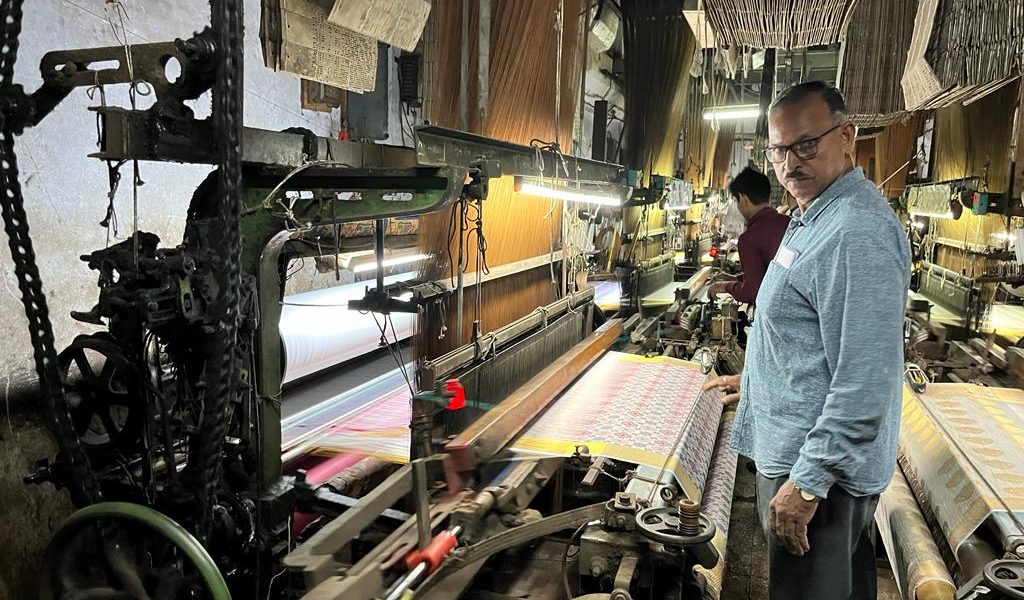
China has become a focal point for discussions in Surat, India's textile hub, amidst the upcoming Gujarat Lok Sabha elections. The government's issuance of Quality Control Orders (QCOs) targeting low-quality textile imports, particularly from China, has sparked concerns within the industry.
Impact on prices and viability
The primary concern for Surat's textile industry is the potential impact of QCOs on fabric and yarn prices. A significant portion of Surat's yarn supply comes from China at competitive rates. Blocking these imports has resulted in yarn shortages, pushing domestic prices upwards. This price rise is likely to trickle down to finished textile goods, potentially increasing the burden on consumers.
Industry experts also worry about the long-term viability of Surat's textile sector in the face of global competition. While QCOs aim to prevent low-quality imports and promote domestic manufacturing, they might disrupt the established supply chain. The industry argues that Chinese imports provide stability in both price and quality. Disrupting this source could make Surat less competitive in the global market.
MSMEs and the PLI scheme
Micro, Small and Medium Enterprises (MSMEs) and small weavers in Surat are particularly apprehensive about the QCOs. They believe these restrictions add unnecessary hurdles, especially since they were not included in the government's production-linked incentive (PLI) scheme due to the high investment quantum required.
Technical challenges and BIS oversight
The complexity of the technical specifications outlined in the QCOs poses another challenge. Many textile traders lack the in-depth knowledge required to navigate these regulations. The Bureau of Indian Standards (BIS) is responsible for overseeing quality standardization across various sectors, including textiles. QCOs are issued by central government ministries after consulting with BIS. Violations of these orders can result in hefty penalties and even imprisonment.
There are reports that the QCO list will be further expanded in the coming year, raising concerns about its impact on Surat's textile industry. The city, once renowned for its silk weaving, is now a commercial hub for textiles. The bustling textile markets of Surat, like Sahara Darwaja and Old Bombay Market, are the lifeblood of the city's economy. The industry hopes that a balance can be struck between quality control and maintaining Surat's competitive edge in the global textile market.
It may be noted, the textile industry in India is estimated to be worth $165 billion. Surat is a major center for producing synthetic fabrics and yarns. The recent QCOs pertain to various technical textiles, including geo-textiles, agro-textiles, and medical textiles.
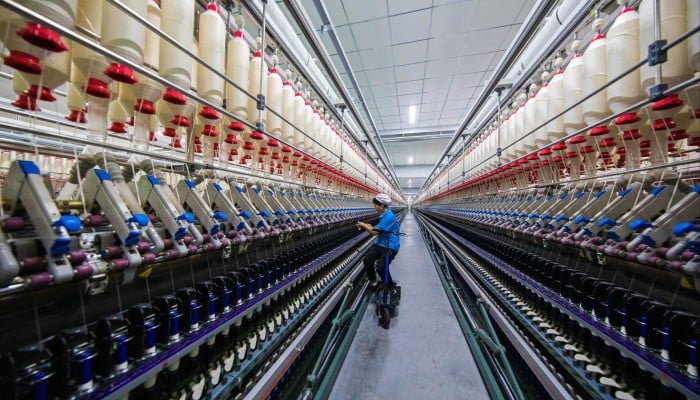
Xinjiang's textile industry has witnessed a record surge in exports despite US sanctions targeting the region's cotton production. This growth is attributed to a "revolutionary shift" powered by artificial intelligence (AI) and 5G technology.
Yarn exports rise despite sanctions
Customs data reveals a 74 per cent jump in yarn and raw material exports and a 30% rise in clothing exports from Xinjiang in 2023. This comes in stark contrast to a decline in textile exports from India and Vietnam. The increase is credited to a government-backed initiative that introduced AI and 5G into Xinjiang's mills. This resulted in a significant reduction in energy consumption and improved product quality, boosting global competitiveness.
Previously, Xinjiang's factories relied on automated spinning processes, but they lacked real-time monitoring and efficient energy management. The new AI-powered system connects all factory machinery, including air conditioners and air purification systems, optimizing energy use by over 1 per cent. AI also oversees yarn quality, preventing defects and waste.
China's extensive 5G infrastructure plays a crucial role in facilitating the rapid data transmission required for AI operations. Additionally, the cost-effectiveness of 5G technology in China makes it a viable solution for large-scale industrial applications.
Human rights a point of contention
The US government alleges forced labor practices involving Uygur Muslims in Xinjiang's cotton production. The US Uyghur Forced Labour Prevention Act (UFLPA) aims to prevent American companies from profiting from such practices. Also, the US Department of Labour emphasizes the difficulty of conducting proper due diligence in Xinjiang due to government restrictions and the absence of independent worker representation. Meanwhile, US lawmakers are considering further sanctions targeting Chinese fast-fashion retailers. Of course, China refutes these claims, calling them a fabrication intended to suppress Chinese businesses.
Meanwhile, China's Ministry of Industry and Information Technology aims to achieve digital connectivity and AI transformation in 70 per cent of the country's textile factories by 2025. Continued advancements in AI and 5G are expected to further reshape China's textile industry, including Xinjiang's production sector.
The Indian Government has raised the duty drawback rates for various linen products made from cotton and blended fibers. The Ministry of Finance's Department of Revenue issued a notification on April 30, 2024 to outline these adjustments and amendments.
According to the notification, certain revisions have been made under the Customs and Central Excise Duties Drawback Rules of 2017 to enhance the reasonability of provisions. For instance, the duty drawback rate for items like bed linen, table linen, toilet linen, and kitchen linen made from cotton fibers notably, within the HSN code 630201has been raised from 2.6 per cent to 3 per cent. Additionally, the upper cap of duty drawback has been elevated from Rs 40.5 per kg to Rs 68.9 per kg for these specific products.
In parallel, the government has also increased the duty drawback rate from 2.4 per cent to 2.6 per cent for bed linen, table linen, toilet linen, and kitchen linen made from a blend of man-made fibers and cotton, categorised under HSN code 630202. However, there hasn't been a corresponding adjustment to the upper cap of the duty drawback; it remains unchanged.
Kontoor Brands Inc. emerges as a frontrunner in stimulating demand within the denim sector, leveraging strategic collaborations and innovative product offerings to enhance consumer engagement. Spearheading this drive is Kontoor's astute partnership with renowned artists and its integration into prominent music events, propelling Wrangler's visibility while fostering brand loyalty among consumers.
Scott Baxter, Kontoor's chairman and CEO, highlighted Wrangler's notable advancements in product innovation and direct-to-consumer (DTC) sales, showcasing an 8 per cent growth in the global DTC segment. With an expanding footprint beyond traditional denim wear, Wrangler diversifies its portfolio, capitalizing on emerging markets such as outdoors, which now constitutes a substantial $200 million segment.
The company's foray into collaborations, exemplified by the upcoming release of Lainey Wilson's collection, signifies a strategic push towards capturing diverse consumer segments, particularly the younger demographic. Baxter emphasized Wrangler's resonance with contemporary trends through collaborations like Staud, targeting the evolving preferences of the youthful female audience.
Despite challenges in wholesale distribution, Kontoor remains resilient, with Lee brand witnessing traction in innovative product lines, particularly catering to the burgeoning demand among younger female consumers. Baxter outlined key initiatives such as the heritage collection and Lee Golf, poised to amplify brand presence and drive sustained growth.
Moreover, Kontoor's multiyear initiative, Project Jeanius, underscores a commitment to bolster profitability through operational efficiencies, positioning the company for sustained growth in the long term.
While first-quarter financials reflect a modest decline in net income, Kontoor's adjusted earnings per share exceeded Wall Street expectations, buoyed by robust gross margin expansion. Encouraged by the promising performance, Kontoor revised its full-year earnings outlook, anticipating stronger gross margin expansion and reaffirming its revenue forecast.
In navigating dynamic market conditions, Kontoor Brands stands resolute, leveraging innovation and strategic partnerships to fortify its position as a leader in the denim landscape, poised for sustained growth and profitability.
Itema plans to unveil its cutting-edge weaving innovations alongside a comprehensive range of digital features and intelligent solutions through the Hello Itema Customer Portal at ITM 2024.
Through these exhibits, Itema aims to amplify benefits for its Turkish clientele. Attendees at ITM will have the opportunity to witness live demonstrations of the latest R9500EVOterry, renowned for its exceptional textile versatility and machine reliability, favored by terry towel weavers worldwide. The enhanced EVO iteration of the R9500EVOterry promises even greater textile mastery, performance, and user-friendliness.
Presented in both wide and narrow widths, the new R9500EVO underscores the superior textile proficiency achieved through EVO enhancements.
The company will introducing the innovative isaverfancy machine, built upon the technology of isavereco, available in up to six weft colors, allowing for the elimination of waste selvedge on the left-hand side of the rapier machine. This breakthrough translates into substantial cost savings and a significant contribution to sustainable weaving by reducing raw material and resource wastage.
The customer portal HelloItema will demonstrate a comprehensive suite of digital functionalities and intelligent solutions, empowering Itema's customers to streamline their workflow effortlessly. Accessible via any digital device through a browser or app, and directly from the machine console on EVO generation Itema machines from the mill floor, HelloItema facilitates seamless procurement of original spare parts through an optimised e-commerce platform, enables users to track order statuses, open service tickets, and access relevant machine documents with a simple click.
Moreover, visitors to the Itema booth will have the opportunity to explore the latest solutions for upgrading existing Itema, Sulzer, Somet, and Vamatex looms, alongside a comprehensive range of OEM spare parts. Additionally, Itema Group's subsidiary, Lamiflex, will showcase its advanced weaving accessories, including rapier tapes and sprocket wheels, further enriching the offerings at ITM in the Itema booth.
A representative of the business community, the Federation of Bangladesh Chamber of Commerce and Industry (FBCCI), has urged the government to increase support for backward linkage industries, focusing particularly on the leather, and RMG sectors.
During the inaugural meeting of the Standing Committee on Backward Linkage Industry at FBCCI’s Motijheel office in Dhaka, chaired by Omar Faruk, Shenzhen Metal Industries, the discussion highlighted the urgent need for improved facilities.
Amin Helali, Director, Standing Committee, emphasised on the crucial role of backward linkage industries in the country’s economic growth and foreign exchange earnings, spanning from readymade garments to leather.
Despite their significant contribution, these industries face various challenges, particularly the lack of direct export avenues.
The committee emphasised the necessity of government cooperation and stakeholder involvement to effectively address these challenges. The industry has progressed from being an importer of 100 per cent of materials for production to achieving self-sufficiency, even amidst disruptions like the COVID-19 pandemic, Helali pointed out. He also highlighted the sector’s resilience in maintaining exports despite import interruptions.





